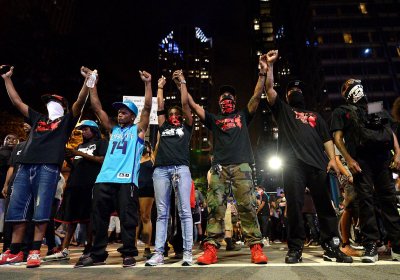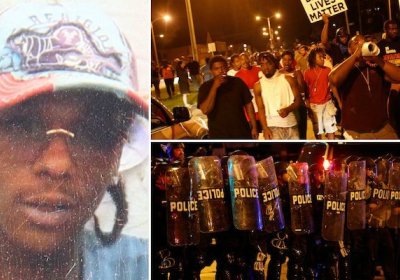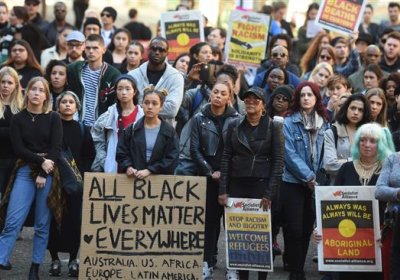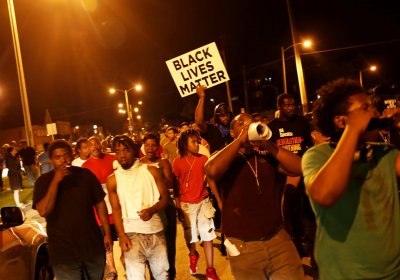The star of the new Netflix hit Luke Cage, Mike Colter, said the new show — featuring a bulletproof African-American man sporting a hoodie — highlighted the plight of many young Black people in the United States who have been shot dead by police and the decades-long struggle against such brutality.
Black Lives Matter
The protests by professional sports players in the United States during “The Star-Spangled Banner” have spread since NFL quarterback Colin Kaepernick sparked the controversial movement in support of the Black Lives Matter movement in August by refusing to stand for the anthem before games. The protests have spread, with other NFL players joining in as well as sportspeople from soccer and volleyball.
New reports of police murdering Black people seem to occur daily. Three recent police killings that have sparked huge protests took place in Tulsa, Oklahoma; Charlotte, North Carolina; and El Cajon, California.
The Charlotte murder and demonstrations have received the most coverage. Before he was shot dead on September 20, Keith Scott, a 43-year-old African American, was sitting in his car waiting for his child to come home from school.
Protests and tear gas have filled the streets of Charlotte, North Carolina nightly since the murder on September 20 of Keith Lamont Scott, a 43-year-old African American, at the hands of police in yet one more case of racial profiling.
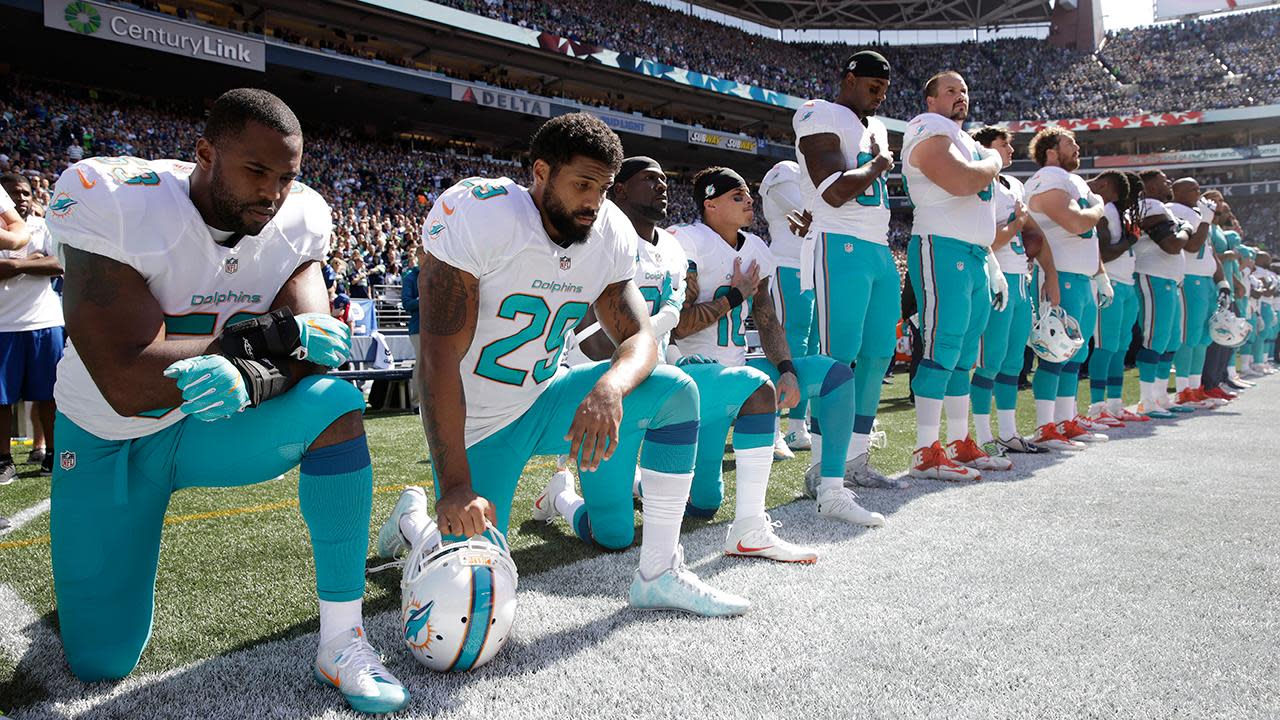
On September 11 in the United States, a small group of National Football League players risked their careers, their endorsements and their livelihoods. They did so through the simple act of refusal.
A coalition of about 60 Black Lives Matter groups from around the United States issued “A Vision for Black Lives: Policy Demands for Black Power, Freedom and Justice” on August 1.
The document is long and detailed. It is the most important Black independent political action program since the National Black Independent Political Party and Black Power conventions of the early 1970s. It also is a reflection of the leading role of Black young people in the still-nascent radicalisation of US youth in general.
With the media awash 24/7 with the charges and counter-charges between the two candidates for president from the major capitalist parties, police murders of African Americans and protests against them continue apace — receiving only cursory media attention.
The death of yet another Black man at the hands of police — this time in Milwaukee on August 13 — touched off nights of rebellious protests as crowds of people confronted officers and demanded justice. The bitter discontent was years in the making. It is the result of systematic racism and discrimination that has left Black residents in Wisconsin's largest city as second-class citizens.
 The US’s first Black swimmer to win a gold medal, Simone Manuel, dedicated her win to ending police brutality on August 11. Manuel tied with Penny Oleksiak from Canada at 52:70 to win gold in the 100 metre freestyle race at the Rio games that day.
The US’s first Black swimmer to win a gold medal, Simone Manuel, dedicated her win to ending police brutality on August 11. Manuel tied with Penny Oleksiak from Canada at 52:70 to win gold in the 100 metre freestyle race at the Rio games that day.
"And, no, it's not going to end today. I can't tell you it's going to end tomorrow. I don't know when it's going to end. But it's for y'all to start." This is what Sedan Smith, the brother of Sylville Smith, the 23-year-old African American man shot dead by police, told Democracy Now! on August 15. "This is what you get! We're not the ones killing us! You're killing us! We can't make a change if you all don't change."
- Previous page
- Page 11
- Next page



